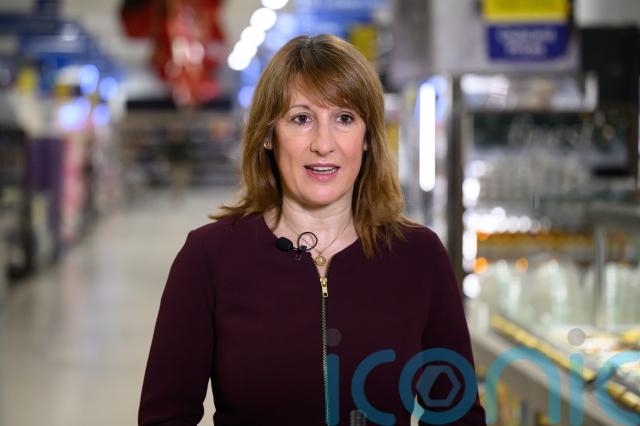
UK inflation fell to a four-month low in October, paving the way for interest rates to be cut before Christmas despite concerns about rising food prices, experts say.
Economists think the latest inflation reading will encourage the Bank of England to reduce borrowing costs at its next decision in December.
Consumer Prices Index (CPI) inflation fell to 3.6% in October, from 3.8% in September, the Office for National Statistics (ONS) said.
This was the lowest level since June this year, but above the 3.5% that most economists were forecasting for the month.
A slower increase in gas and electricity prices was the biggest factor pulling down the overall inflation rate in October, the ONS said.
Ofgem raised the energy price cap by 2% in October, but this is significantly less than the nearly 10% hike last year, meaning the rate of inflation slowed.
However, food prices rebounded in October after easing back the previous month.
The annual rate of food and non-alcoholic drink inflation rose to 4.9%, from 4.5% in September, while prices increased by 0.5% month on month.
This was driven largely by an increase in the price of bread and cereals, while meat, fish, vegetables, sugar and chocolate also rose, partly offset by a decline in fruit prices.
Danni Hewson, head of financial analysis for AJ Bell, said: “Although the energy price cap has gone up, it’s not gone up by as much as it did last year.
“That’ll be cold comfort for families paying more for their gas and electricity who will also be finding that food prices have been ticking back up, as staples like bread, meat and potatoes all cost more than they did even a month ago.”
But she added that the “silver lining” of the data was that it has raised expectations that the Bank of England will “deliver an interest rate cut before Christmas”.
Some businesses and industry groups have blamed rising food prices on rising costs for producers and retailers, including higher national insurance contributions since April.
Karen Betts, chief executive of the Food and Drink Federation, said: “Food and drink manufacturers are paying nearly 40% more for ingredients and energy than they were in January 2020, as well as bearing a range of newer regulatory costs, like new packaging taxes and increases to employer national insurance.
“Hard-pressed food and drink companies are finding they simply have no choice but to increase prices.”
However, James Smith, developed markets economist for ING, said evidence from the eurozone, where fresh food inflation is falling, “suggests inflation at the supermarkets is probably more or less at its peak”.
But he said October’s rebound was likely to “keep concern alive” among some policymakers at the Bank of England, although he was not expecting this to stop a December rate cut.

The latest inflation reading comes a week before the Chancellor is due to deliver her autumn Budget, where she is widely expected to raise taxes to fill a multibillion-pound gap in her spending plans.
Rachel Reeves said she was planning to take “targeted action” within her tax, spending and borrowing plans to help further cut the cost of living.
She said she recognises that inflation was “still a big burden on families right across the country, and that’s why in the Budget next week, I’ll be taking targeted action to bring down inflation to address the cost of living”.
The Chancellor evaded a question on whether she recognised that increases to employer national insurance contributions helped push up food prices.
She replied: “Food prices fell last month and they have risen this month.
“But I do recognise that there’s more that we need to do to tackle the cost-of-living challenges.
“And that’s why one of the three priorities in my Budget next week is to tackle the cost of living, as well as to cut NHS waiting lists and cut Government debt.”
Subscribe or register today to discover more from DonegalLive.ie
Buy the e-paper of the Donegal Democrat, Donegal People's Press, Donegal Post and Inish Times here for instant access to Donegal's premier news titles.
Keep up with the latest news from Donegal with our daily newsletter featuring the most important stories of the day delivered to your inbox every evening at 5pm.